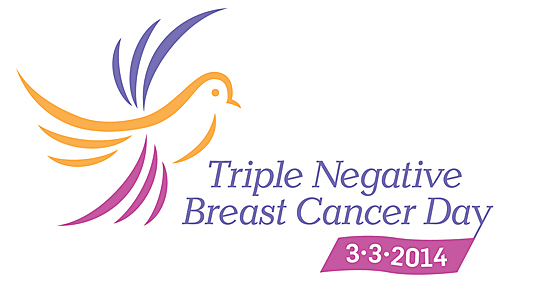By Samantha Watson : February 25th, 2014
 That’s the case in patients who are diagnosed with triple negative breast cancer, a rare and sometimes aggressive subtype of breast cancer. Their condition is the focus of a new public outreach effort.
That’s the case in patients who are diagnosed with triple negative breast cancer, a rare and sometimes aggressive subtype of breast cancer. Their condition is the focus of a new public outreach effort.Taking you through my Journey to bring much awareness to Breast Cancer and that Early Detection is key to survival.
"I promise, Suzy... Even if it takes the rest of my life." -Nancy G. Brinker, Founder of Susan G. Komen for the Cure
WHAT IS TRIPLE NEGATIVE BREAST CANCER?
Just in recent years, Triple Negative Breast Cancer (TNBC) has sparked interest in the news where instead of calling the tumor as ER-negative, PR-negative, and HER2-negative; researchers began using the shorthand term, "Triple Negative," dubbed the "new type" of breast cancer. Being Triple Negative, you don't have a targeted therapy and your only treatment option is chemotherapy.
Triple Negative Breast Cancer is seen in about 15% of all breast cancers. TNBC is a very aggressive cancer that tends to strike younger women, pre-menopause, especially among African-American women and women who have BRCA1 mutations. The tumor tends to be fast growing and is less likely to show up on an annual mammogram. TNBC is more likely to metastasis early on; has a high rate of recurrence in the first 2-3 years from diagnosis and has a poorer prognosis than other types of breast cancer due to lack of specific, targeted treatment for TNBC.
 That’s the case in patients who are diagnosed with triple negative breast cancer, a rare and sometimes aggressive subtype of breast cancer. Their condition is the focus of a new public outreach effort.
That’s the case in patients who are diagnosed with triple negative breast cancer, a rare and sometimes aggressive subtype of breast cancer. Their condition is the focus of a new public outreach effort.